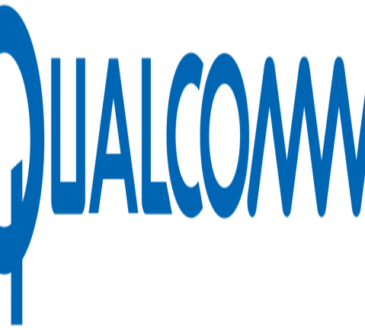
By Oystein Bergmann, Correspondent Scandinavia
Ericsson has posted impressive second quarter(Q2) results, going by facts pieced together by our correspondent.
Group organic sales grew by 8 per cent YoY, despite a sales decline in Mainland China of SEK -2.5 billion(US$287.50million). YoY and an IPR revenue decline of SEK -0.5 billion. YoY. Reported sales were SEK 54.9 (55.6) billion.
Gross margin exclusive of restructuring charges improved to 43.4 per cent (38.2%) driven mainly by operational leverage in Networks. Q2 2020 was negatively impacted by inventory write-down and initial 5G deployments in Mainland China. Reported gross margin was 43.4 per cent (37.6%).
EBIT excluding restructuring charges improved to SEK 5.8 billion(US$6.66million). (10.6%) from SEK 4.5 billion (8.2%) YoY driven by Networks. Reported EBIT was SEK 5.8 (3.9) billion.
Organic sales in Networks grew by 11 per cent YoY, driven by market share gains. Sales in Mainland China were SEK -2.0 billion. lower YoY. Reported EBIT margin was 21.7 per cent (13.2%).
Organic sales in Digital Services were stable YoY, despite a sales decline in Mainland China of SEK -0.5 billion. YoY. Reported EBIT (loss) was SEK -1.6 (-0.7) billion., impacted by a write-down of SEK -0.3 billion. for pre-commercial product investments for the Chinese market.
Reported net income was SEK 3.9 (2.6) billion.
Free cash flow before M&A was SEK 4.1 (3.2) billion. supported by higher incoming IPR payments. Net cash per June 30, 2021 was SEK 43.7 (37.5) billion.
President and CEO of Ericsson, Börje Ekholm commented: “Our strong business performance continued, with an organic sales growth of 8 per cent in the quarter. This was despite a sales decline of SEK -2.5 billion. YoY in Mainland China. Networks continued to grow market shares in the quarter with some significant wins. Group gross margin increased to 43.4 per cent (38.2%). We are well positioned to take advantage of continued market momentum with our competitive 5G product portfolio and cost structure. However, it is prudent to forecast a materially lower market share in Mainland China for Networks and Digital Services as the earlier decision to exclude Chinese vendors from the Swedish 5G networks might influence market share awards.
“Networks sales grew organically by 11 per cent, despite lower volumes from delayed 5G deployment in Mainland China. This growth reflects the continued high activity levels in most markets. The North East Asia market outside Mainland China saw strong growth in 5G volumes. Gross margin improved to 47.9 per cent (40.5%). Through proactive and continuous measures for supply chain resilience we have accelerated production to meet customer demand, and we are well prepared for any challenges in the future. Our increased R&D investments have accelerated product development. We strengthened our Cloud RAN portfolio further with 5G mid-band and massive MIMO support for increased network performance. Cloud RAN will enable service providers to seamlessly evolve their networks towards cloud-native technologies and open network architectures, meeting demand for more deployment flexibility. We continue on the successful path of 5G wins in North America. We have signed another 5-year contract, this one amounting to US$ 8.3 billion. (SEK 71 billion.), with a leading customer. This is the single largest deal in the history of Ericsson.
“In Digital Services the strong momentum in 5G Core continued and we are ramping up R&D investments in the cloud native 5G portfolio. Organic sales were stable in the quarter. However, excluding the reduced sales in Mainland China, sales grew by 5 per cent. Gross margin decreased to 37.9 per cent (43.6%) YoY, mainly due to a write-down of SEK -0.3 b. related to pre-commercial product investments for the Chinese market. A material loss of market share in Mainland China, which contributed 5.4 per cent of Digital Services sales in 2020, would cause a delay in reaching the EBIT margin target for 2022. A significantly reduced volume would lead to a limited loss in 2022 in Digital Services. Improvements are skewed towards the year end 2022, as we expect to see a gradual increase in Core revenues. Based on our strong portfolio, we expect to exceed our original EBIT margin target of 4-7 per cent, as sales in other markets over time will compensate for the reduction in Mainland China. We see strong demand for our OSS, BSS and 5G core offerings, positioning us well for longer-term profitability.
The new IPR agreement with Samsung reaffirms the significant value of our patent portfolio and with this agreement in place we are well positioned to conclude pending and future patent license renewals. One additional agreement was signed in July. There is currently high activity in renewal negotiations. As new contracts are concluded, revenues will include retroactive payments for the unlicensed period prior to signing.
Whilst many markets are returning to normal following the COVID-19 pandemic, we continue to see rising numbers of cases in South East Asia, which may result in a slower recovery for impacted countries.
We continue to invest in compliance to fully embed our commitments to ethical business practice, in all areas across the organization. Ensuring all decisions are taken with integrity is a driving force in our culture-change journey.
The opportunity from enterprise for 5G provides an exciting growth path for Ericsson. Building on the strong foundations of our core business we will continue to take a stepwise approach to investing in growth in Dedicated Networks, IoT and the wireless portfolio acquired with Cradlepoint. We foresee 20-30 per cent annual market growth in enterprise, with opportunities in automation, remote operations and safety management across whole industry sectors such as smart manufacturing, ports and airports, energy, mining, health and agriculture. Enterprise use cases in 5G – and the continuing growth in 4G – will drive the digital transformation of business globally combining the high performance, low latency and security benefits of wireless over traditional fixed networks. We are confident that wireless will be the first-choice connection for global business in the 5G era.”



